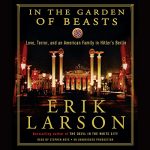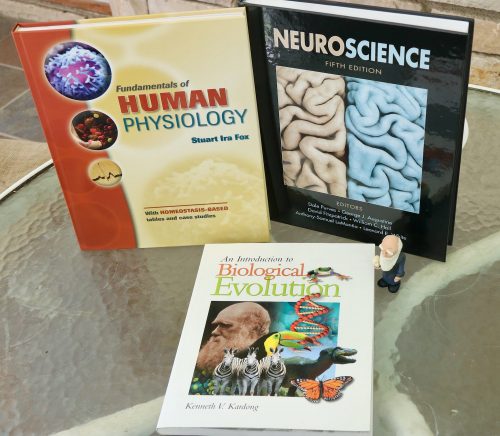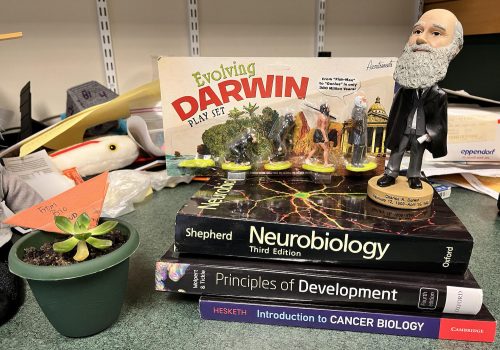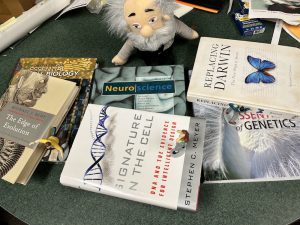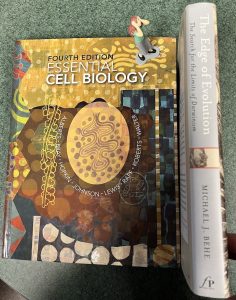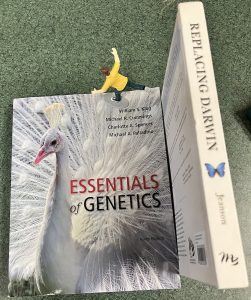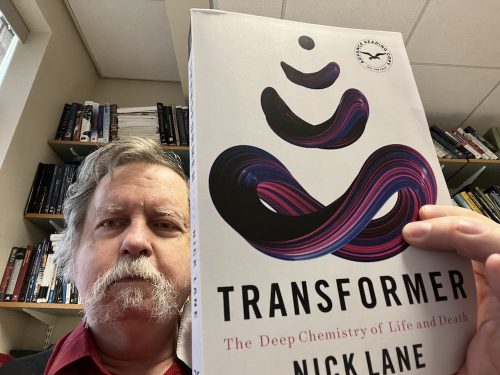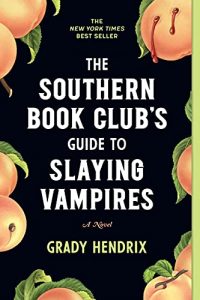I’ve been reading Erik Larson’s In the Garden of Beasts: Love, Terror, and an American Family in Hitler’s Berlin in the evening, when my mushy brain allows me to focus for a bit. It’s good, but weirdly on-the-nose for someone living in America in the 2020s.
A quick summary: William Dodd, an ordinary history professor, gets selected to serve as the American ambassador to Germany in 1933, largely because the usual gang of civil servants all said “Holy shit, no, Hitler is coming to power and that dude is nuts.” He agrees to it because he thinks he’ll be freed up from his many university duties to write his magnum opus, a multi-volume history of the Old South, which, spoiler alert, he’s never going to finish. I sympathize a bit — escaping committee work and teaching for a few years, to host an occasional social whirl among the wealthy people of Europe? Sounds tempting. Except for the “Oh, right, Hitler” part.
So he gets there and steps right into the back-biting internal politics of the diplomatic corps. He’s a middle-class, fairly conservative but politically liberal fellow, plunged into a social scene ruled on the American side by an axis of privileged, filthy rich Harvard/Princeton/Yale alumni who love indolence and the perks of their offices; they’re all maneuvering behind his back to undercut his austerity initiatives, and seem to spend more time defending their right to send lengthy telegrams across the Atlantic while partying to all hours and getting up at 10am than in dealing with the crisis at hand. Dodd is being undermined, while at the same time he’s acquiring a reputation as the Cassandra of American diplomacy, because he’s horrified by the Nazis.
Many of his peers are busy with propping up policies of appeasement — they don’t want their gravy train tipped over. They know Hitler is a jumped-up nobody, and they keep predicting that the sensible German people and their well-established representatives will eventually set the lunatic aside, nobody could possibly let him run roughshod over such a civilized nation. He’s a flash in the pan. Cooler heads will prevail.
Unfortunately, for those who know a little history, in 1934 the Night of Long Knives happens. Dodd, as a diplomat, knew everyone involved — Röhm, the leader of the brown shirts, lived just around the corner from the embassy. Himmler and Göring were familiar social acquaintances; his daughter, Martha Dodd, was sleeping with Rudolf Diels, commander of the Gestapo (she seems to have jumped into bed with any prominent Nazi she could find, and also with Russian NKVD agents — she was a liberal modern woman. She initially admires the Nazis, eventually becoming disillusioned and transferring her adoration to Russian communists. She was also a naive woman.) It’s stunning how much horrible history was happening right there in this corner of Berlin, in these few years of history.
From there, it descends into a seemingly inevitable spiral of chaos, and we know how that ended up. Dodd is eventually squeezed out and returns home to wander the lecture circuit, telling everyone how evil the Nazi regime was.
What most struck me, though, was the ubiquitous anti-Semitism. The Americans opposed Nazi policies of imprisoning and murdering Jews, for sure…but behind the scenes all the American civil servants are nodding and agreeing that yes, there is a “Jewish problem” and gosh, Jews sure have crept deviously into positions of influence, like Jews always do. These were the people of power and influence, all assuming that yes, Jews are undesirable, but it just won’t do to kill them outright like the Nazis were doing. Even Dodd was making these kinds of arguments, accepting the Nazi premise but only rejecting their methods.
Dodd’s wikipedia page makes this same observation.
Edward M. House, a veteran in Democratic Party circles since the Wilson administration, told Dodd that he should do what he could “to ameliorate Jewish sufferings,” but cautioned, “the Jews should not be allowed to dominate economic or intellectual life in Berlin as they have done for a long time.” Dodd shared House’s views and wrote in his diary that “The Jews had held a great many more of the key positions in Germany than their numbers or talents entitled them to.” Based on this view of the proper role of Jews in society, he advised Hitler in March 1934 that Jewish influence should be restrained in Germany as it was in the United States. “I explained to him [Hitler],” wrote Dodd, “that where a question of over-activity of Jews in university or official life made trouble, we had managed to redistribute the offices in such a way as to not give great offense.” Hitler ignored Dodd’s advice and responded that “if they [the Jews] continue their activity we shall make a complete end of them in this country.”
This kind of mealy-mouthed defense is ubiquitous in the book. There are no heroes, only a few people who had glimmerings of the consequences of the bigotry that they also shared.
The author makes the point that maybe the Nazi catastrophe wasn’t inevitable at all, that what it required were people of integrity to point out that it was all built on lies and hatred, but when the people you depend on to stand for what is right are all Ivy League dickheads who don’t even recognize the humanity of the Jewish people, all responses will be ineffectual and actually enabling. I felt like the diplomatic corps prior to WWII was made of an army of Tucker Carlsons. No wonder Hitler got away with so much criminality early in his career!
The book did not fill me with confidence about the future. I see the same phenomenon going on around me right now: we have media that are constantly making the case that Jews, or Palestinians, or black people, or trans people, or <name your hated minority here> are less than fully human, that we can abridge their rights because they are lesser beings, and we are becoming inured to this kind of language. Nick Fuentes is not some amusing comedian, the Proud Boys are not a fraternal organization, Fox News is not just echoing the perspective of a simple demographic. These are all kinds of monstrous haters who are building a foundation for an unimaginably evil future.
You can try to pretend it can’t happen here…but it’s happening here.

